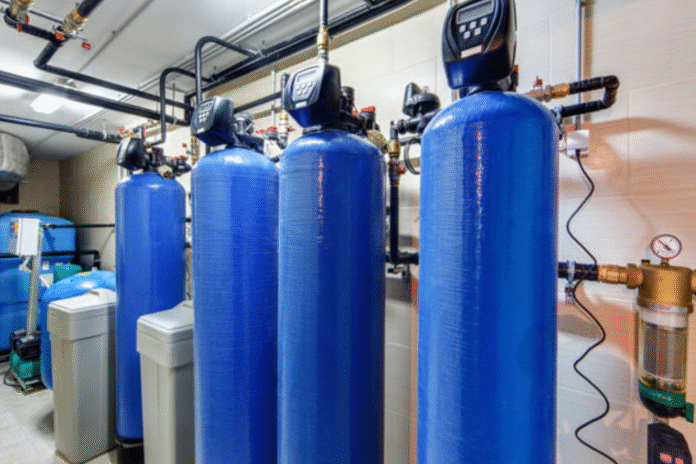Walk into almost any business that relies on water—restaurants, hotels, laundromats, even local manufacturing shops—and you’ll hear a similar frustration. Hard water. It clogs up pipes, ruins equipment efficiency, and leaves behind that stubborn film nobody wants to scrub off every other day. In Kingston, WA, where local water often runs heavy on minerals, it’s not just a minor annoyance. For businesses, it’s a bottom-line problem.
And while homeowners tend to tackle hard water with small systems under the sink, businesses have much bigger headaches—and they need bigger, smarter fixes. That’s where commercial water softeners Kingston WA come in, offering a practical way to not only protect equipment but also cut down on waste, energy bills, and unnecessary maintenance costs.
Hard Water’s Quiet Impact on Businesses
Here’s the thing about hard water—it sneaks up on you. At first, you barely notice the subtle stains on glassware or the soap that just doesn’t lather like it should. But behind the scenes, minerals are working overtime, sticking to heating elements, layering inside pipes, and forcing your equipment to work harder than it was designed to.
Restaurants find dishwashers breaking down sooner than expected. Hotels spend more on cleaning supplies and laundry detergents because sheets and towels never seem truly soft. Even car washes, a staple of small-town commerce, notice that spots are harder to rinse away and customers complain about residue.
By the time managers realize just how much they’re losing, the costs have stacked up—repairs, replacements, wasted energy, not to mention unhappy customers.
Thinking Bigger: The Role of Industrial Systems
For companies that use significant amounts of water daily, the solutions need to scale. That’s why industrial water softener systems exist—not just to make water feel smoother, but to protect critical operations. These systems are designed with large capacity tanks, durable resins, and automation that keeps them working without constant human oversight.
Think about a food processing plant. Every step of the production chain depends on reliable water, whether for cleaning, mixing, or steaming. Hard water not only increases costs but risks compliance issues, since scale and deposits can throw equipment out of alignment. A brewery, too, can’t afford water inconsistencies when their product depends on precise chemistry.
Industrial systems don’t just “treat” the water—they help stabilize an entire business model. And for companies in Kingston and throughout the Puget Sound region, that level of dependability can mean the difference between predictable growth and ongoing struggle.
Why Local Businesses Are Paying Attention
It used to be that many businesses looked at water softening as an optional upgrade. A “nice to have.” But as utility costs climb, and as customers expect consistent quality, it’s quickly turning into a must.
There’s also the sustainability angle. Every time hard water makes equipment run less efficiently, more energy is wasted. When detergents don’t work effectively, more chemicals are used. By investing in reliable softening solutions, businesses aren’t just saving money—they’re lowering their environmental footprint. That’s something customers notice, especially in a community-driven place like Kingston, where eco-consciousness runs deep.
And here’s a little truth: business owners talk. When one café owner installs a system and notices their machine maintenance bills drop in half, word spreads quickly. Suddenly, it’s not just about being efficient—it’s about staying competitive.
Tailored Solutions for Different Needs
What makes water softening interesting is that there’s no one-size-fits-all fix. A small bakery that runs a few ovens doesn’t need the same system as a marina that washes down dozens of boats daily. That’s where providers of industrial water softener solutions WA step in, offering tailored setups that match the actual water usage and demands of each business.
It’s not just about dropping in a machine and walking away. The better providers test the water, calculate peak usage, and design systems that grow with the business. For example, a hotel might need a dual-tank system so there’s always softened water on tap, even when one tank regenerates. A factory might need smart monitoring tools to flag efficiency drops before they turn into costly problems.
The best setups are those you don’t even think about once they’re running. They quietly save money, extend equipment life, and let owners focus on what they actually do best—serving customers, making products, and running a business.
Bringing It All Together
So, what does all of this mean for a small-to-mid-sized business in Kingston? It means that investing in water softening isn’t just a maintenance decision. It’s a strategic one.
When you reduce downtime, extend the lifespan of expensive equipment, cut utility bills, and create better customer experiences, you’re not just solving a water problem—you’re creating a growth advantage. Businesses that adopt these solutions early will always stay a step ahead of those who wait until breakdowns force their hand.


